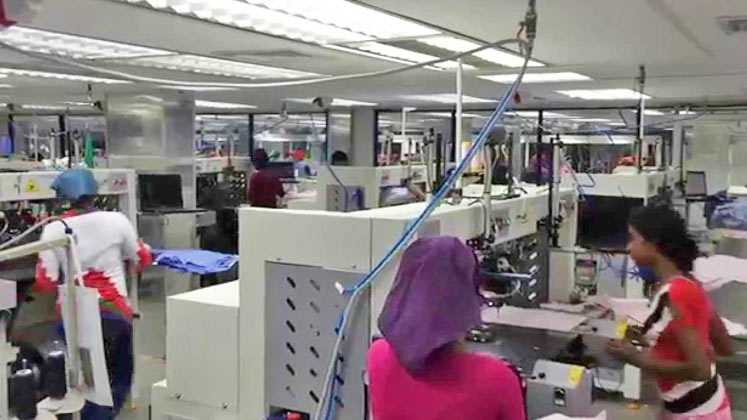
Around 53.8 lakh jobs spread across five specialised industries including the all important readymade garment sector – considered the lifeline of Bangladesh’s economy and employment – are at risk on account of the impending fourth industrial revolution, found a recent study. Garment sector, in particular will be the worst hit, with around 60 per cent or 27 lakh jobs vanishing by 2041.
As per the study, Future Skills, conducted by Access to Information (a2i) programme under the ICT Division along with some local and international experts between May and October last year, jobs in large scale will disappear within the next two decades for adoption of new technologies.
Given the scenario that might appear in the near future, what is it that the stakeholders are doing to ensure that the lucrative export-oriented RMG sector does not have to bear the brunt?
“We will build specialised factory for human development. You carry on with the administrative work and we will make the field ready… Instead of fearing about job loss, you all should work collaboratively,” maintained Industries Minister Nurul Majid Mahmud Humayun, harping on public-private coordination towards workers’ skill development, while addressing a workshop on “National Consultation on 4th Industrial Revolution and Future of Work” in capital Dhaka recently.
It may be mentioned here that a2i in collaboration with United Nations Industry Development Organization (UNIDO) organised the workshop, in which a research paper titled ‘Future Skills: Finding Emerging Skills to Tackle the Challenges of Automation in Bangladesh’ was unveiled.
It would be misleading to say people will lose their job after automation…We should accept automation to accelerate our growth and at the same time workers need to be trained to combat the incoming industrial revolution, stated Principal Coordinator of SDG affairs at the Prime Minister’s Office, Md. Abul Kalam Azad.
Spelling out the future course of action to combat the same, stakeholders explained the roadmap elaborately.
As per a2i Policy Adviser Anir Chowdhury, new features including robotics would be introduced in academic curriculum to develop necessary manpower to cope up with the fourth industrial revolution. He also recommended a few moves to combat the challenges that would be posed by automation as part of which leveraging school digital labs set up by ICT Division and Ministry of Education for the integration of future skill development was one.
To identify the challenge and new opportunities resulting from automation, a2i with support from Cabinet Division, ICT Division, USAID and UNDP Bangladesh has done an extensive research, which is primarily to provide an understanding of the impact of automation in the enterprises and workers within 5 major sectors, namely readymade garment and textile, agro food, furniture, tourism & hospitality and leather and footwear.
The Government on its part is planning to teach robotics in some selected schools on a pilot basis, underlined Deputy Minister of Education, Mohibul Hasan Chowdhury Nowfel, adding after the pilot, the ministry will take a decision on when it will incorporate robotics into the curriculum.
“The Government is trying to update the curriculum in schools and colleges for the upcoming industrial revolution. We want industry’s support to make the initiative viable. There was a negative perception about vocational education in the country and the Government is trying to improve the situation. Without vocational education or proper training, we can’t face the challenge of 4.0 industry revolution,” he added.

Leave a Reply